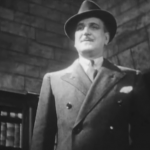 |
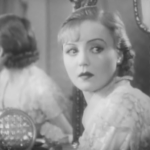 |
 |
| Paul Frank Morgan |
Maria Nancy Carroll |
Walter Paul Lukas |
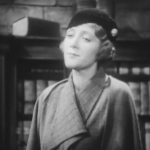 |
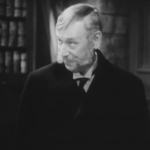 |
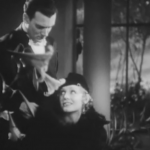 |
| Hilda Jean Dixon |
Schultz Charlie Grapewin |
Lucy Gloria Stuart |
| Released by Paramount | Directed By James Whale |
||
Proof That It’s Pre-Code
- A premeditated murder is committed, and surely it’s okay to do that sometimes, right?
- One of the reporters seems a little too keen on getting an eyeful of the murderer.
- Adultery galore.
Kiss Before the Mirror: Reflections on a Marriage
“I want you to know what’s in my mind. I shall get you out of this cell a free man. I shall conduct your defense with skill, with cunning, and with lies. And the moment the jury acquits you, then… I shall kill my wife.”
“For some strange reason, women don’t like being killed.” Paul (Frank Morgan) says that with a note of wryness early on as he prepares for the trial of his best friend, Walter (Paul Lukas). Walter murdered his wife after finding her undressing at the home of her lover, but was it a crime of momentary passion, or a planned murder that would make it seem like such?
Frustrated by Walter’s indecisive responses to his probing, Paul goes home to his wife, Maria (Nancy Carroll), and rests while she makes up for an afternoon out. Unbeknownst to her, he suddenly encounters the same situation that Walter described playing out before him from when Walter realized his wife was cheating on him. Realizing with horror that his wife is also unfaithful, he returns to Walter and fills in the gaps to the man’s own story to him. Paul knows, because he now has a similar plan for his own wife.
If this sounds a bit too coincidental to be true, it most certainly is, but it offers a great chance for dramatic exploration. Paul’s both cocky and smart, and the emotional wallop of his discovery has believably left him in a raw shape. Watching his emotions play out contrasted directly against Walter’s as well as seeing how Maria instantly begins to sense his anger is fascinating, full of glances and uncouth parallels.
The film is centered on the idea of how to deal with emotional unfaithfulness, with Paul stuck in a whirlwind emotions between meticulous, angry grief and the feelings he still maintains for his wife. Oftentimes this leads to euphemistic debates between his colleagues and himself, where Paul rationalizes Walter’s actions as if they were his own. The split on their feelings is well-summed up here, wherein Maria, still guilty about her affair and missing her friend, fights with Paul over how he’s defending Walter. Paul begins and she fights back against his jealous impositions:
“I must convince the jury that [Walter] killed her in a justifiable rage.”
“Because she loved someone?”
“Because she lied.”
“That’s no reason why she should have been shot down like a mad dog.”
“That, my dear, is a matter of taste.”
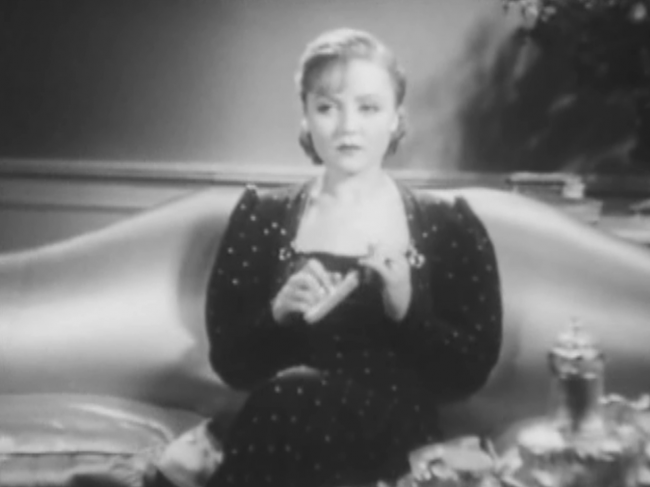
Maria’s first appearance in the movie sets the tone for the character: haughty and manipulative, but still sweet and loving. It’s not easy to convey, but Carroll pulls it off.
This is all drawn expertly by director James Whale, who imbues in the film a great deal of visual gravitas as it plays out against mirrors and twisted reflections. Visually as well as dramatically the film is full of artificial contrasts, the beauty and sophistication of the rich laid bare in the dark and crowded woods or the barren prison cells. The courtroom is the only middle ground, where the last third is spent. There, Paul’s promise to Walter that he’d kill his wife, begins to manifest as his closing argument becomes less of a justification for Walter’s crime than for the one that’s clearly formed in his own mind.
Whale does some fantastic work in the courtroom, with Walter behind Paul, trapped by what he knows but can’t say. Then there’s Maria in the front row of the packed courtroom. And then there’s Paul, with the revolver in his pocket. Whale ups the tension remarkably; in one shot of pure bravado, he slowly turns the camera to do a complete 360 on the courtroom, showing Paul talking and the courtroom in rapt attention– all save for Maria, who is fidgeting, sensing the fact that her husband knows the truth and the unkind words he has for Walter’s dead wife may soon ring true for her as well.
The supporting cast is great. Paul has a pair of partners, Schultz and Hilda, both with enough of a backstory hinted that that the audience is surely left wanting more. Schultz is an older gentleman with a drinking problem (or one that may be past) who clearly had grander ambitions at one point in time. He’s treated as both a confidant and joke by Paul, an existence you can severely frustrates the older man.
Hilda, meanwhile, is perhaps one of the most refreshing characters you can encounter from the early-30s, a hard nosed lawyer who wouldn’t be out of place on modern procedurals. She’s smart and playful, while clearly something more that the movie refuses to fully explain. Here’s Maria, trying to shake more out of her:
“What are you? A lawyer or a new kind of woman?”
“By day, I’m a lawyer. At night… well, you may be surprised.”
Even though Hilda makes a number of jokes about ‘good’ men, there’s enough ellipsis that it wouldn’t be surprising for modern audiences to read her as a lesbian. If she is or even if she isn’t, it’s refreshing to see a professional woman in the Ruth Chatterton/Female vein who’s treated with respect and deferment by her colleagues and friends.
Spoilers.
Paul doesn’t end up killing his wife, though his excitement in the courtroom and how he draws out the gun proves to the jury how passionate the thought of infidielity can make a man, and they acquit Walter for his wife’s murder. A sure sign that this is a pre-Code, since Walter walks free at the end even though we in the audience know that the act was premeditated. Even Walter seems disgusted by his own acquittal at the finish, frustrated with Paul for what he’s done and safe in the knowledge that he’ll regret his own actions for the rest of his life.
Some can read the movie as inherently misogynistic– after all, the jury does buy the ‘it’s okay to murder your cheating wife sometimes’ defense hook, line and sinker– but I think the truth is more complicated than that. Paul’s defense and appeals are aimed at his jury’s basest feelings, manipulating them through emotions (including ‘what are your spouses doing right now?’ tricks) to put them in Walter’s shoes.
Human relationships are more complicated than simple revenge can properly encapsulate, and the film’s ending, where Paul and Maria forgive each other for their baser desires, is remarkably heartfelt. The movie is more interested in finding the underpinnings of these characters and seeing how far the coarseness in their souls will take them rather than arguing simple gender politics. We all have a hidden darkness in our souls– and what could be a more James Whale-ian conclusion?
End spoilers.
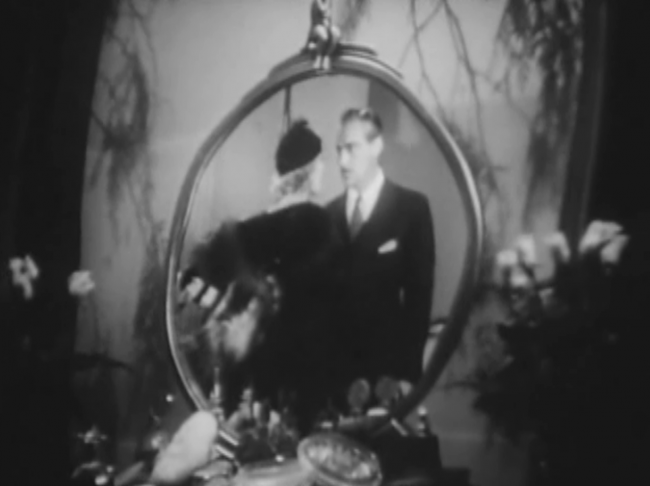
Whale does a lot of great camera tricks throughout the movie. Walter”s initial retelling of the story involves incidental music as well as a distorted flashback that represents his emotional state– one of the earliest in cinema. He also makes masterful use of lighting and extreme closeups to convey mood.
Like in other Whale films, there’s a host of minor comedic characters who mistakenly believe the film is actually about them that keep the proceedings, despite the tension, properly punctuated. The moment where Paul, having finally confirmed his wife’s infidelity, is interrupted by a man asking for a match is a personal favorite, as is Schultz’s entrance after the dramatic courtroom scene with the desire to say something, only to find everyone has left.
The Kiss Before the Mirror is contrived and a little silly, but that’s wholly by design. It’s remarkably tense for a film with a simple premise, and a wonderfully cagey exploration of emotional infidelity from one of the most stylish directors of the early 30s.
Gallery
Hover over for controls.
Trivia & Links
- Remade as Murder Under Suspicion (1938). The remake would also be helmed by Whale with Warren William in the Morgan role.
- The film reuses sets from Whale’s Frankenstein (1931).
- FilmFanatic.Org calls it a ‘must see’.
- The NYU Film Notes from Everson compares the movie to its post-Code enforcement remake.
- I do really dig this film’s poster. Found it here along with a still at Dr. Macro.
Awards, Accolades & Availability
- This film is an obscure one. I wish you luck in finding it!
Comment below or join our email subscription list on the sidebar! |
||
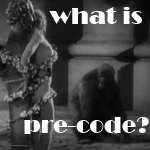 |
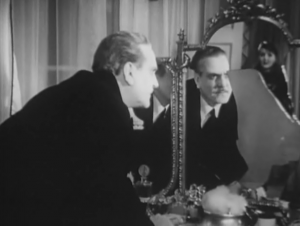 |
 |
 |
 |
|

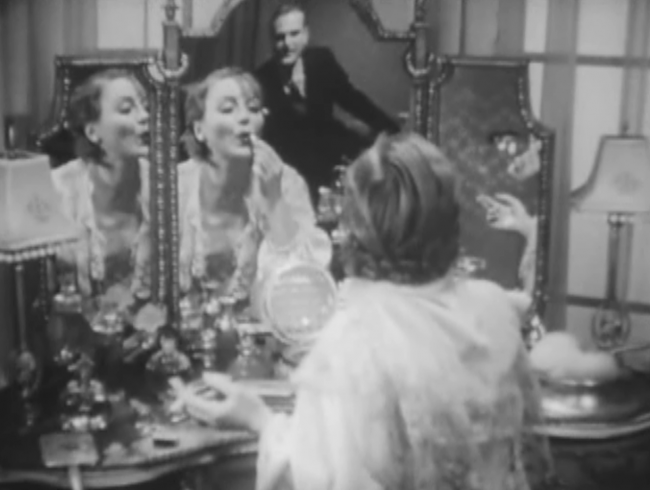
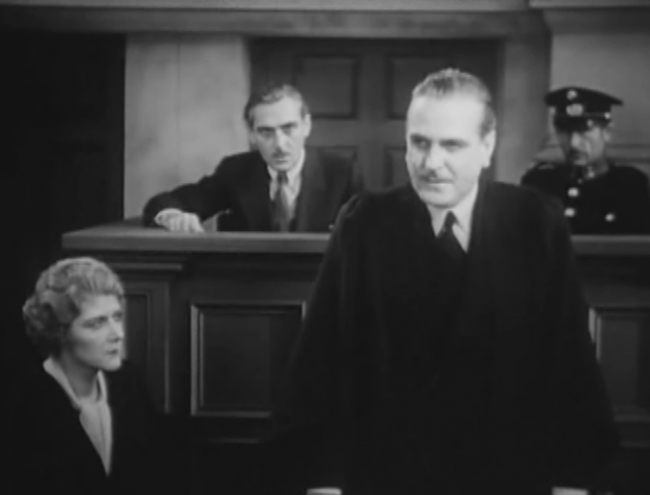
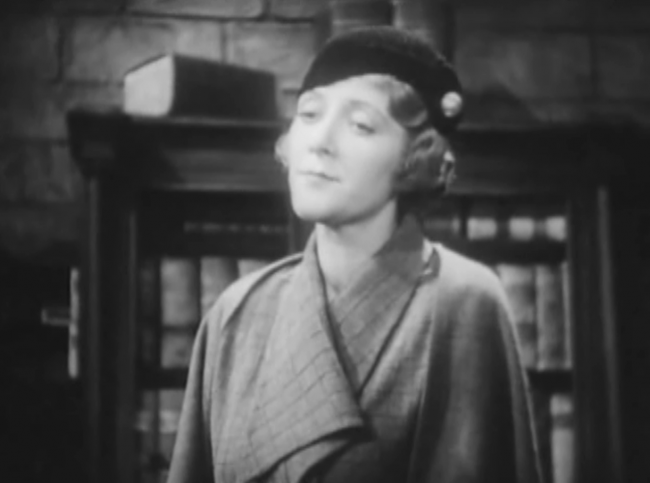
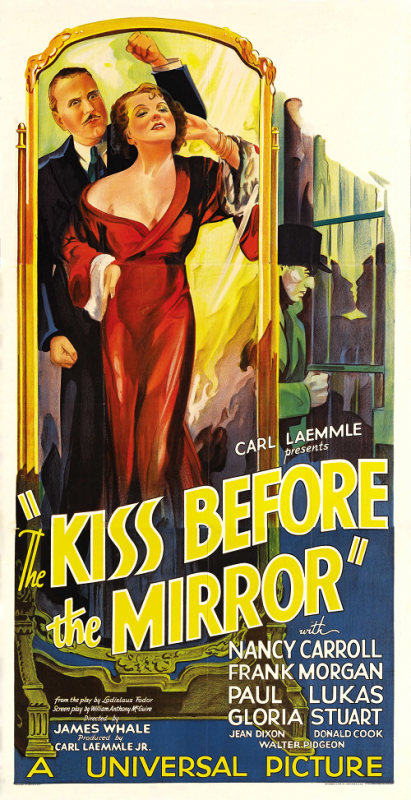



6 Comments
nitrateglow · September 25, 2015 at 8:31 am
Been meaning to find this one. Speaking of James Whale, do you ever plan on looking at The Old Dark House?
Danny · January 8, 2016 at 12:07 am
IF I STOP LOSING MY COPY, YES
Milind Phanse · October 4, 2015 at 10:23 pm
Nice review. I managed to find this film with some effort, and enjoyed it. However, I feel that the ending is a bit of a let-down.
Danny · January 8, 2016 at 12:13 am
I won’t disagree with that entirely.
Dino · March 3, 2016 at 2:13 pm
Just watched it and looked up your review, expecting to find a “dislike”. You definitely hit all the points I didn’t like about it: contrived, silly (melodramatic), misogynistic. I guess these points just bothered me a little more than they bothered you. But I will check it out again sometime, looking at it with your POV. Just not too soon.
guildlee · August 21, 2020 at 9:58 pm
Another great review as always, thank you for all your great work here, you do have the title of the remake incorrect, the title is “Wives Under Suspicion” 1938,
also The Kiss Before the Mirror (1933) was released on DVD in June 2016, and is available on Amazon
https://www.amazon.com/Kiss-Before-Mirror-Nancy-Carroll/dp/B01I5M3R5O/
Comments are closed.